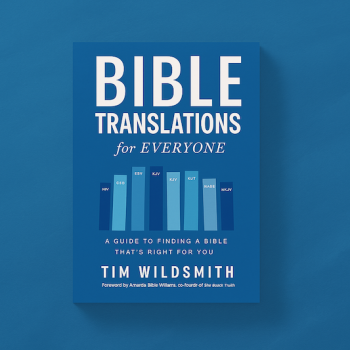David Dorsey points out that Song of Songs 2:11-13 contains seven descriptions of spring and seven imperatives. Sevens make me think of the creation week: Spring is new creation. But can we fill that out in more detail? Verse 11a says that winter is past. Winter is darkness. Spring says, Let there be light. Verse 11b says that the rain is over. Waters above have stopped falling. Day 2. (more…) Read more


















